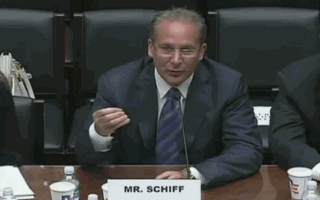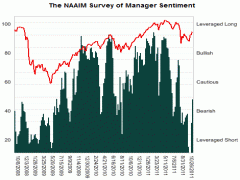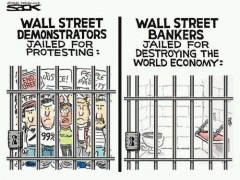
(ZeroHedge) ” ‘The most common mistake people make when buying property in Cyprus is to use a lawyer who has been introduced or recommended to them by a property developer,’ says Nigel Howarth who has helped foreign property buyers in Cyprus for more than 10 years. Foreign buyers are sitting ducks. They’re unaware of the local business culture and don’t suspect that their lawyers are in cahoots with developers–aided and abetted by the banks.”
“The country acceded to the Eurozone in 2008, but it’s already in a heap of trouble. A recent loan agreement with Russia of €2.5 billion will keep it afloat for a few months into 2012. Then it’s bailout and haircut time. On October 27, Standard & Poor’s cut Cyprus to BBB. The big problem: exposure of its banks to Greek sovereign, corporate, and bank debt. But not a word about the title-deed scandal and the billions that evaporated with it.”
“The scheme works this way: A developer takes out a mortgage on the land but hides it from foreign buyers. The bank retains the title deed as collateral. When the developer sells the property, the buyers’ lawyer, who is in cahoots with the developer, doesn’t perform a title search and doesn’t ‘discover’ the original mortgage. Buyers, assuming that their part of the property is free and clear, either pay cash or take out a mortgage. The developer pockets the money instead of paying off the original mortgage. The bank goes along because it can collect interest on one or two mortgages. But it retains the title deed as collateral for the original mortgage, and the buyer never sees it.”
“Throughout, buyers are told by everyone, including the government, that a buyer of immovable property is absolutely protected once the sales contract is lodged with the Cyprus Land Registry, and that they don’t need the title deed.”
“Proving fraud in court seems to be impossible. In a recent double-selling case, the judge ruled against the plaintiff: lodging of a sales contract at the Land Registry does not mean that buyers ‘automatically and in perpetuity have become the ‘owners’ (as they mean it) of the residence,’ she wrote. Hence, only possession of a title deed confers protection against double selling.”
“But the bank still holds the title deed as collateral for the original developer mortgage, and it has the right to foreclose on the property. Under normal circumstances, it takes a bank between 9 to 12 years to obtain control over the property. So banks extend and pretend until the developer goes broke. Then they move to recuperate a property that one or two other “owners” have paid for…. A nightmare. And no legal resolutions are in sight.”
“The numbers are stunning. In this tiny speck of a country with 803,000 people, about 130,000 properties are still awaiting their title deeds. If the average value of these homes is €150,000, then nearly €20 billion worth of properties might be in dispute, many of them with more than one mortgage and more than one owner.”
“The banks aren’t talking. And they aren’t writing down their assets to reflect the layers of mortgages that are worthless. Developers are going bust. The money they pocketed has disappeared. Expat homeowners who don’t hold title deeds are terrified of losing their homes, even if they paid cash. There are no legal processes in place to resolve this. Estimates of the missing money range from €3 to €6 billion—enough to take down all Cypriot banks. By comparison, the banks’ exposure to Greek sovereign debt is estimated to be €4.2 billion, of which only half will have to be written off.”
Full Story: Another Eurozone Country Bites the Dust (ZeroHedge)
One Big Lesson for Real-Estate Buyers: ALWAYS HAVE DEED IN HAND AND PROOF THAT IT’S REAL UPON CLOSING. If someone or some entity tries to convince you it’s unnecessary, run for the exit and expect the coming debacle…



 RSS feed for comments on this post.
RSS feed for comments on this post.












